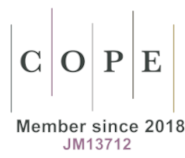Egypt: Revolution 2011/2025. Dystopia, Utopia, and Political Fiction in Mustafa Al-Husayni’s Novel "2025 An-Nida Al-Akhir"
DOI:
https://doi.org/10.18778/1641-4233.21.07Słowa kluczowe:
Mustafa al-Husayni, Egypt, Arab Spring, revolution, utopia, dystopia, political fiction, politics, literatureAbstrakt
The article discusses the novel 2025. An-Nida al-Akhir [2025. The Last Call] written by a young Egyptian journalist and writer born in 1982 – Mustafa al-Husayni. The novel was published in early 2011, between the fall of Zayn al-Abidin Ibn Ali in Tunisia and of Husni Mubarak in Egypt. It describes a revolution against the regime of Jamal al-Mubarak, son of Husni, spurred by a group of young Egyptians. The story takes place in 2025 and anticipates the development of the political situation in Egypt and the Middle East between 2011 and 2025 in a utopian/dystopian manner. Alongside Utopia by Ahmad Khalid Tawfik and the poetry of Usama al-Abnubi and Abd ar-Rahman al-Abnudi, al-Husayni’s book is considered to be a forecast of the Arab Spring in Egypt.
Pobrania
Bibliografia
Abrash, I., Ilm al-Ijtima as-Siyasi. Muqaraba Ibistimulujiyya wa-Dirasa Tatbiqiyya ala al-Alam al-Arabi [Political Sociology. Epistemological Approach and Applied Study on the Arabic World]. E-Kutub, 2011.
Zobacz w Google Scholar
Abrash, I., Sira ala as-Sulta wa-as-Sarwa wa-laysa Rabi’an Arabiyyan [The Struggle for Power and Wealth, not the Arabic Spring]. (January, 2014). Web. 23 April 2015, http://www.ssrcaw.org/ar/show.art.asp?aid=397204
Zobacz w Google Scholar
Abu Deeb, K., The Imagination Unbound. Al-Adab al-‘Aja’ibi and the Literature of the Fantastic. With a critical edition of Kitab al-‘Azama. Bayrut: Dar as-Saki, Dar Oryx, 2007.
Zobacz w Google Scholar
Ayalon, A., Thawra [Revolution]. The Encyclopaedia of Islam CD_ROM Edition v.1.1. Leiden: Brill, 2001.
Zobacz w Google Scholar
Bodio, T. and Chodubski, A., O prognostyce w politologii [On Prognostic in Political Studies], “Studia Politologiczne,” no. 8 (2004), pp. 261–290.
Zobacz w Google Scholar
Booker, M.K., The Dystopian Impulse in Modern Literature. Fiction as Social Criticism. Westport-London: Greenwood Press, 1994.
Zobacz w Google Scholar
Buhl, F., Muhammad B. ‘Abd Allāh, The Encyclopaedia of Islam, CD_ROM Edition v.1.1. Leiden: Brill, 2001.
Zobacz w Google Scholar
Al-Chamisi, Ch., Taxi. Transl. by M. Michalski. Kraków: Karakter, 2011.
Zobacz w Google Scholar
Clarke, N., Ways of knowing: an Interview with Sophia Samatar. Strange Horizons, (June, 2013). Web. 15 May 2015, http://www.strangehorizons.com/2013/20130624/1samatar-a.shtml
Zobacz w Google Scholar
Danahar, P., The New Middle East. The World after the Arab Spring. New York–London–New Delhi–Sydney: Bloomsbury Press, 2013.
Zobacz w Google Scholar
Dziekan, M.M., Egipska dystopia. O powieści Ahmeda Chalida Taufika Jutubija (‘Utopia’), „Ethos,” no. 107 (2014), pp. 200–311.
Zobacz w Google Scholar
Al-Farabi, Alfarabi on the Perfect State. Transl. by R. Walzer. New York: Oxford University Press, 1985.
Zobacz w Google Scholar
Al-Farabi, Państwo doskonałe. Polityka. Transl. by. J. Bielawski, Warszawa: Państwowe Wydawnictwo Naukowe, 1957.
Zobacz w Google Scholar
Goldman, P., The Death and Life of Malcolm X. Urbana, Ill.: University of Illinois Press, 1979.
Zobacz w Google Scholar
Hassler, D.M. and Wilcox, C., Eds. Political Science Fiction. Columbia: University of South Carolina Press, 1997.
Zobacz w Google Scholar
al-Husayni, M., 2025. An-Nida al-Akhir [2025. The Last Call]. Al-Kahira: Dar Dawwin, 2011.
Zobacz w Google Scholar
Ibn Tufayl, Hayy Ibn Yakẓān. Transl. by J. Bielawski, „Studia Mediewistyczne,” no. 1 (1958).
Zobacz w Google Scholar
Ibn Tufayl, The journey of the soul: the story of Hai bin Yaqzan, as told by Abu Bakr Muhammad bin Tufail, a new translation by R. Kocache. London: Octagon, 1982.
Zobacz w Google Scholar
Isma’il, H., Tarshih Riwayat ‘2025. An-Nida al-akhir’ li-Taqaddum li-Ja’izat Bukir al-Arabiyya [Nomination of the Novel “2015. The Last Call” for Arabic Booker Prize’], Al-Ahram Weekly (May, 2011). Web. 1 March 2015, http://gate.ahram.org.eg/News/73214.aspx
Zobacz w Google Scholar
Al-Jabiri, M.A., Al-Khitab al-Arabi al-Mu’asir [Contemporary Arabic Discourse]. Bayrut: Markaz Dirasat al-Wahda al-Arabiyya, 1994.
Zobacz w Google Scholar
James, L., From Robinson to Robina, and Beyond: Robinson Crusoe as a Utopian Concept, Utopias and the Millennium. Eds. K. Kumar, S. Bann. London: Reaktion Books, 1993, pp. 33–45.
Zobacz w Google Scholar
Jamsheer, H.A., Abdul-Rahman al-Kawakibi i jego traktat Natura despotyzmu i walka z niewolą. Miejsce autora i dzieła w myśli politycznej Odrodzenia Arabskiego [Abdul-Rahman al-Kawakibi and his treatise Nature of Despotism and Struggle against Captivity. The author and his work in the political thought of the Arab Renaissance]. Świat arabski – świat islamu. Ed. H.A. Jamsheer. Łódź: Wydawnictwo Uniwersytetu Łódzkiego, 1991, pp. 35–58.
Zobacz w Google Scholar
Juszczyk, A., Stary wspaniały świat. O utopiach pozytywnych i negatywnych [Brave Old World. On Positive and Negative Utopias]. Kraków: Wydawnictwo Uniwersytetu Jagiellońskiego, 2014.
Zobacz w Google Scholar
Al Khamissi, K., Taxi. Transl. by J. Wright. Laverstock, Wiltshire: Aflame Books, 2008.
Zobacz w Google Scholar
Khayrutdinov, D.R., Ahmed Khaled Tawfik’s Novel Utopia as an Important Example of the New Wave of Science Fiction in Arabic Literature, “World Applied Sciences Journal,” no. 2 (2014), pp. 190–192.
Zobacz w Google Scholar
Kumar, K. and Stephen, E., Eds. Utopias and the Millennium. London: Reaktion Books, 1993.
Zobacz w Google Scholar
Levi Della Vida, G., Khāridjites, The Encyclopaedia of Islam, CD_ROM Edition v.1.1. Leiden: Brill, 2001.
Zobacz w Google Scholar
Morgan, C., Ahmed Khaled Towfik Interview. (June, 2012). Web. 15 May 2015, http://worldsf.wordpress.com/2012/06/11/monday-original-content-ahmed-khaled-towfik-interview/
Zobacz w Google Scholar
Moylan, T., Scraps of the Untainted Sky. Science Fiction, Utopia, Dystopia. Boulder: Westview Press, 2000.
Zobacz w Google Scholar
Mumford, L., The Story of Utopias. New York: Boni and Liveright Publishers, 1922.
Zobacz w Google Scholar
Mustafa al-Husayni, Ar-Riwa’i ash-Shabb al-ladhi Tanabba’a bi-ath-Thawra fi ‘2025 An-Nida al-Akhir’ [Mustafa al-Husayni. A Young Writer who Foretold the Revolution in ‘2025. The Last Call’], Ash-Shuruq al-Jadid (May, 2011). Web. 1 March 2015, http://www.masress.com/shorouk/462416
Zobacz w Google Scholar
Pellat, Ch., Ghaylān B. Muslim. The Encyclopaedia of Islam, CD_ROM Edition v.1.1. Leiden: Brill, 2001.
Zobacz w Google Scholar
Rahme, J.G., Abd al-Rahman al-Kawakibi’s Reformist Ideology, Arab Pan-Islamism, and the Internal Other, “Journal of Islamic Studies,” no. 10 (1999), pp. 159–177.
Zobacz w Google Scholar
Salem, S., Egypt Rises Up. The 2011 Egyptian Revolution: Bread, Freedom, Dignity. The Hague: Graduate School of Development Studies The Netherlands, 2011.
Zobacz w Google Scholar
Schwedter, R., Utopie. Überlegungen zu einem zeitlosen Begriff. Berlin–Amsterdam: Edition ID-Archiv, 1994.
Zobacz w Google Scholar
Segal, H.P., Utopias. A Brief History from Ancient Writings to Virtual Communities. Chichester: Viley-Blackwell, 2012.
Zobacz w Google Scholar
DOI: https://doi.org/10.1002/9781118496053
Sezgin, F., Geschichte des arabischen Schrifttums. Bd. 1. Leiden: Brill, 1967.
Zobacz w Google Scholar
Ash-Sharuni, Y., Yutubiya al-Khayal al-Ilmi fi ar-Riwaya al-Arabiyya al-Mu’asira [Utopia – Science Fiction in the Contemporary Arabic Novel], “Alam al-Fikr,” no. 1 (2000), pp. 186–211.
Zobacz w Google Scholar
Shihada, I., Women and the Arab Spring: Expectations and Concern, “Nebula,” no. 8 (2011), pp. 283–295.
Zobacz w Google Scholar
Steinmüller, K., Gestaltbare Zukünfte. Zukunftforschung und Science Fiction. Gelsenkirchen: Sekretariat für Zukunftforschung, 1995.
Zobacz w Google Scholar
Szacki, J., Spotkania z utopią. Warszawa: Wydawnictwo Sic!, 2000.
Zobacz w Google Scholar
Towfik, A.K., Utopia. Transl. by Ch. Rosetti. Doha: Bloomsbury Qatar Foundation Publishing, 2011.
Zobacz w Google Scholar
Tuzovsky, I.D., Svetloe Zavtra, Antiutopia Futurologii i Futurologia Antiutopii. Chelabinsk: Chelabinskaya Gosudarstvennaya Akademia Kultury i Isskustv, 2009.
Zobacz w Google Scholar
Veccia Vaglieri, L., (Al-)Husayn B. ‘Alī B. Abī T.ālib, The Encyclopaedia of Islam, CD_ROM Edition v.1.1. Leiden: Brill, 2001.
Zobacz w Google Scholar
Zgorzelski, A., Fantastyka, utopia, science fiction. Warszawa: Państwowe Wydawnictwo Naukowe, 1980.
Zobacz w Google Scholar

















